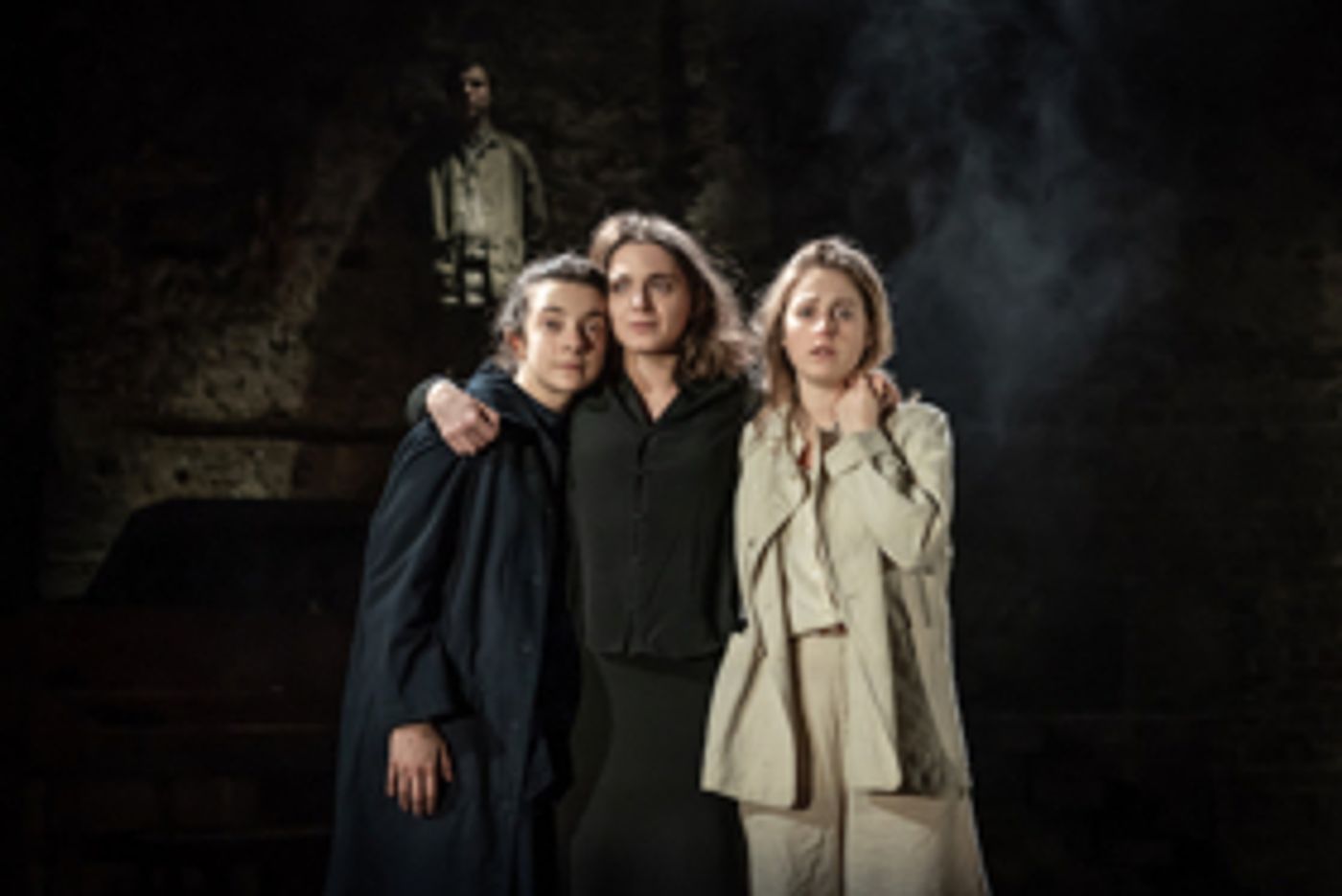Review: THREE SISTERS, Almeida Theatre

![]()
Director Rebecca Frecknall and actress Patsy Ferran recently picked up deserved Olivier Awards for their revelatory revival of Summer and Smoke. Now, they're back at the Almeida, bringing that fresh approach to well-known Chekhov instead of obscure Tennessee Williams.
Rather than pianos, this time this stage is filled with chairs. Over the course of the production, as the Moscow-born siblings - stuck in the provincial garrison town where their late father was stationed - are stripped of their hopes of escape, the stage is stripped bare, until finally (with a climactic flourish from Hildegard Bechtler) their immersion in rural isolation is complete.
Cordelia Lynn provides a new version of the 1901 play - a semi-update that keeps some of the original's lyricism, but mixes in frank, colloquial modern vernacular. The latter sometimes works well, pulling the drama into contemporary experience, finding an easily accessible humour and connecting us to characters searching for meaning who might otherwise seem privileged and indulgent.
It's particularly effective in sketching the titular central trio (Ferran, Pearl Chanda and Ria Zmitrowicz), who really do convince as siblings - that push-pull of affection and exasperation, support and limitation, understanding and judgement. The older pair baby Irina, who reacts with a fury that, ironically, comes across as a tantrum.
When Chanda's marvellously stroppy Masha, who always wears black as though at a funeral for her own life, reveals that she's fallen in love with Vershinin, her sisters hardly react - there's a sense of this being yet another chapter in their dramatic sibling's story.
But they also predict her inevitable heartbreak, and when it comes - in memorably violent grief - they form a tight embrace, cutting themselves off from everyone else. There's an interesting sense of their isolation being as much imposed as self-suffered; often, each physically separates from the other characters, hiding under blankets or lying down out of sight. Only their sisters can reach them.
However, Lynn's text is so candid that the three-hour production feels over-weighted, saturated with words; the existential musing risks becoming repetitive, rather than piercing. Frecknall's production also feels suspended between traditional and daring, kept earthbound by the writing rather than swooping into the characters' inner lives, as we saw with Summer and Smoke.
That's partly an unavoidable problem with tackling a more verbose and expansive play, and one in which characters constantly speak to explore their feelings. But as Lynn is already nudging it towards the contemporary, it might have been better to push that further, strip the text back, and leave space for non-verbal expression too - as we glimpse in the striking opening movement sequence, or in the superb but too few musical contributions from Angus MacRae.
Though in a smaller role here, Ferran is once again excellent as she conveys Olga's hopeless toiling, how she physically drains herself in pursuit of an unreachable goal. She always seems too young and too slight for each new responsibility foisted upon her, and when Fyodor gives her a momentary vision of a different life, her hunger is palpable.
Chanda's Masha is so mired in cynicism that she's initially bracing in her unfiltered rudeness and sardonic appraisals, but when Vershinin opens her heart, Chanda intensely conveys her astonishment - and the tragedy that this revelation will likely bring more pain than joy.
Zmitrowicz's vivid Irina gradually droops and dulls as her hope is snuffed out, but, poignantly, retains her childlike quality. The sisters' sense of arrested development is accentuated by the presence of their 'Nanny', beautifully played by Annie Firbank.
In contrast, Lois Chimimba's sister-in-law Natasha aggressively counters their nostalgia and sentimentality, running the household with a practicality bordering on ruthlessness. There are great turns too from Alan Williams' alcoholic doctor, who knows his life is already wasted; and Peter McDonald's eloquent Vershinin, who still yearns for a better future.
And as bumbling classics teacher Fyodor - whose attempts at wit and cheer are met with studious silence - realises just how unhappy wife Masha is with him, Elliot Levey segues instantly from strong comic relief to stark despair.
There are striking moments throughout, including a scene of lamplit intimacy and a rousing dance, but overall, this is a clash of styles. Though the abandoned piano on stage is symbolic of the sisters' loss, it also feels like a muting of Frecknall's voice; a more radical, stripped-back text might have provided the necessary space for her and her excellent company to explore and express.
Three Sisters at Almeida Theatre until 1 June
Photo credit: Marc Brenner
Reader Reviews
Videos

